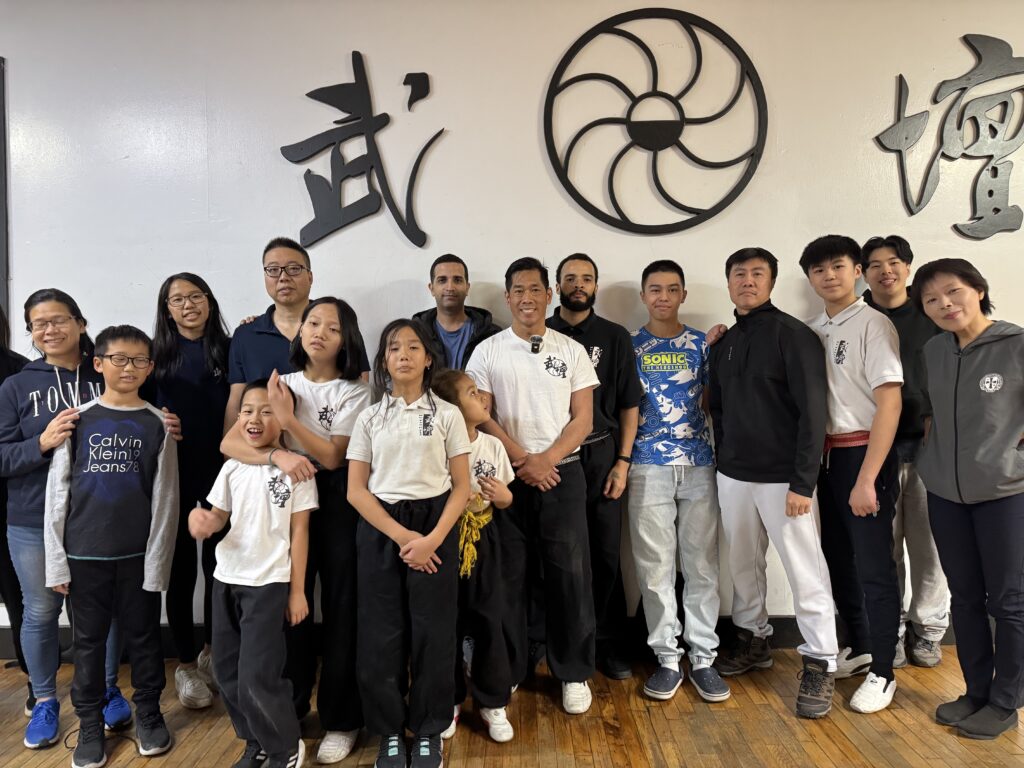
On November 9, 2024, the final session of AABANY’s self-defense series took place at the New York Wu Tang Chinese Martial Arts Institute in Flushing. These classes, held on October 26, November 2, and November 9, brought families and community members together to learn essential self-defense skills, completely free of charge for all attendees. The three sessions covered striking, kicking, escapes from holds and grabs, general awareness, and the legal ramifications of using force for self-defense or defense of others. The workshops were open to everyone, with the flexibility to attend any or all classes on a drop-in basis. The classes, led by David Chiang, a master of martial arts with over 30 years of experience, was a powerful reminder of the importance of awareness, preparation, and the ability to act decisively. David is not just a Kung Fu master, but also a veteran prosecutor with 23 years of experience, a unique combination that shaped his approach to self-defense as both a physical and a legal discipline.
For many Asian Americans, especially after the rise in anti-Asian hate crimes during the pandemic, safety in public spaces has become a real concern. This workshop, like the two that preceded it, did more than just teach physical techniques like striking, kicking, and escaping from holds; it also challenged participants to rethink how we approach safety in our daily lives.
David emphasized that the easiest and safest way to protect ourselves is to avoid dangerous situations entirely. “To avoid,” he said, “you must be AWARE.” Avoidance isn’t passive, it’s proactive. It starts with paying attention to your surroundings:
- Look in all directions
- Observe people’s faces for signs of aggression or hate
- Don’t get lost in your phone or look down on the ground
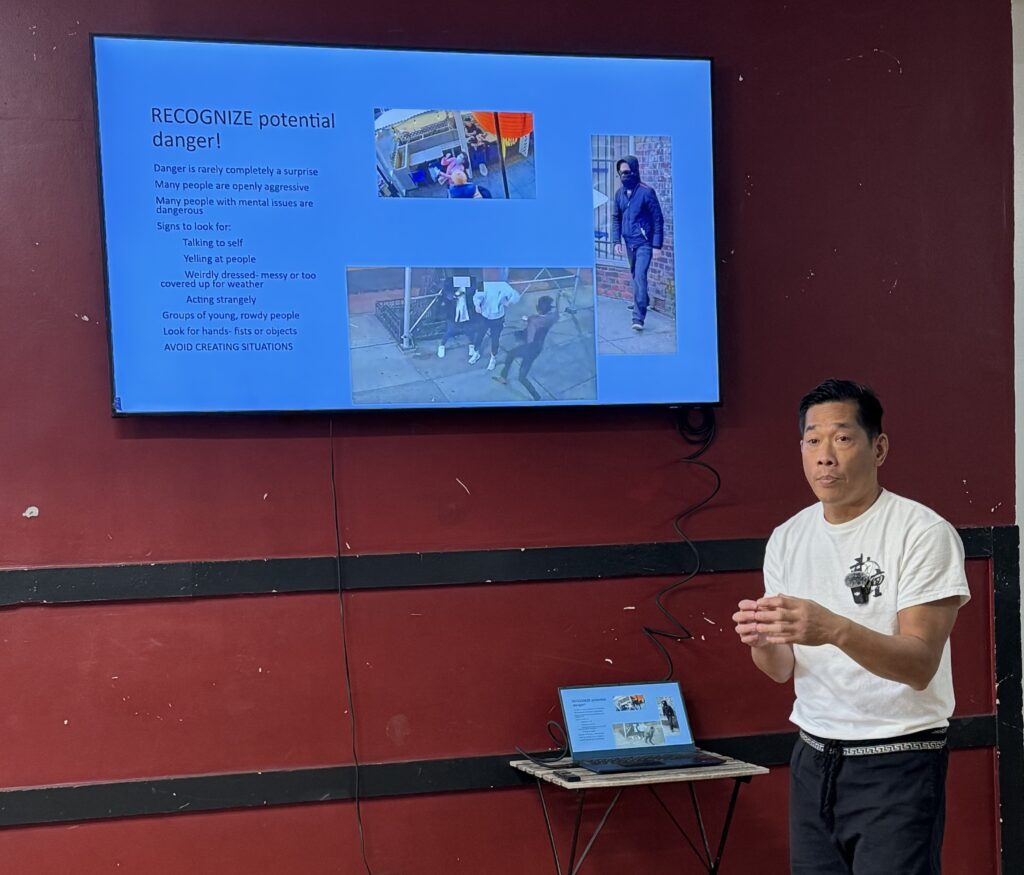
Danger is rarely a surprise. Often, the signs are there: individuals talking to themselves, yelling, or behaving erratically. Groups of rowdy people or someone holding a hidden object can signal potential threats. Recognizing these early signs gives the time needed to act. Whether it’s crossing the street, entering a public space for safety, or calling for help, taking steps early can mean the difference between safety and harm.
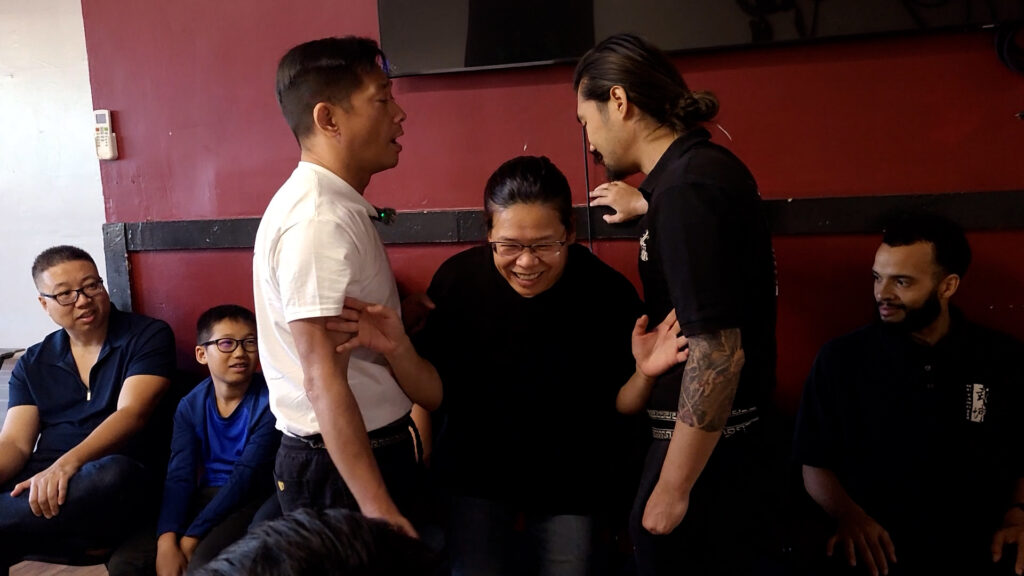
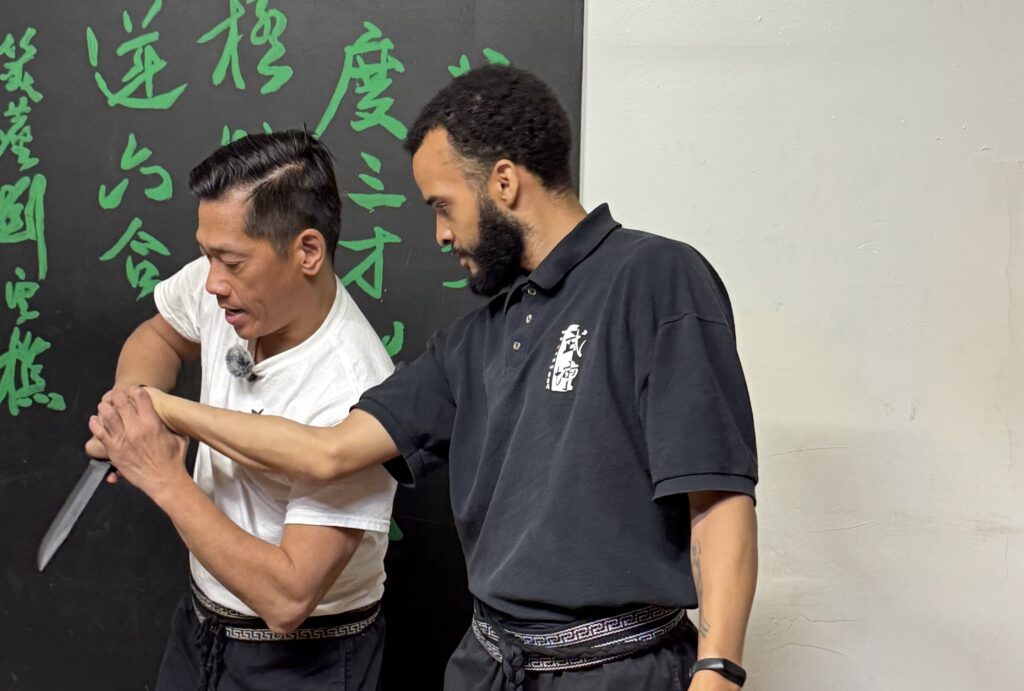
David guided participants through role-playing hypotheticals to simulate potential threats. From subway confrontations to avoiding aggressive groups, these drills helped participants gain confidence in handling worst-case scenarios. He demonstrated what to do if someone pulls a knife, attempts to push someone onto train tracks, or grabs a person from behind. The exercises were about creating distance and making decisive moves to protect oneself and others.
David addressed the misunderstandings that can arise from cultural differences. In Mandarin, the word “nei-ge” (那个)—a common filler word similar to “um” in English can sound like a racial slur to those unfamiliar with the language. This example shows the importance of cultural education and mutual respect.
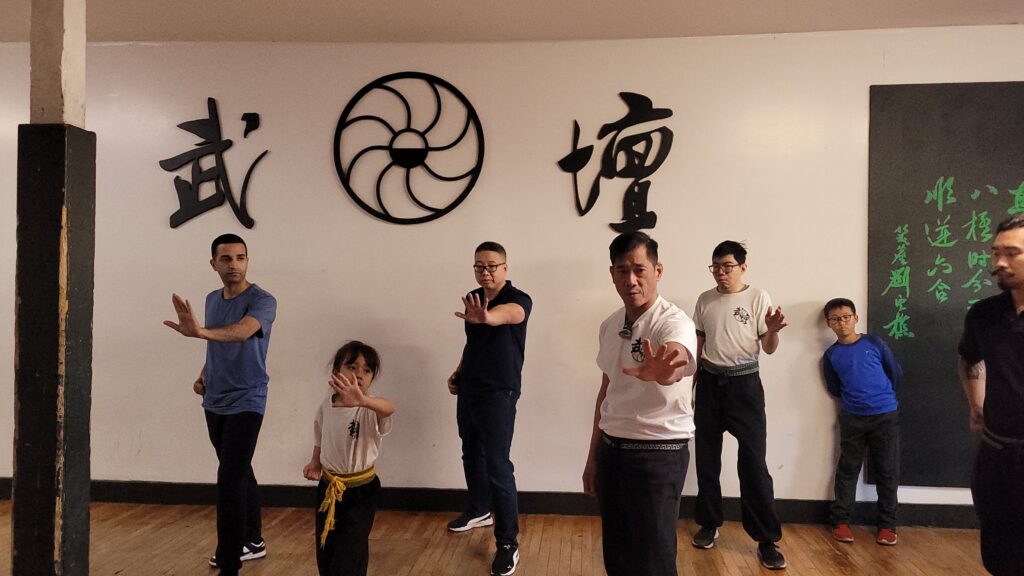
The stereotype captured by the hashtag, #AsiansDontHitBack, gained traction during the rise of anti-Asian hate crimes during the COVID-19 pandemic. While it originally suggested that Asians are passive or non-confrontational, it has since become a call to fight back. Participants were encouraged to reject this stereotype by focusing on being prepared, confident, and ready to act to protect themselves and their communities.
The AABANY self-defense series presented a holistic approach to safety. Participants left with a stronger sense of self-awareness and practical tools to avoid danger. With the rise of hate crimes targeting vulnerable populations, workshops like this are essential. They remind us all that safety is not just a personal responsibility but a collective one. Another set of self-defense classes will be held in the spring. Stay tuned for updates and be sure to join this empowering series!
AABANY extends its deepest gratitude to David Chiang for his dedication to teaching self-defense and empowering the community. His unique expertise as both a martial artist and attorney provided participants with invaluable insights into safety and preparedness. AABANY acknowledges The Asian American Foundation (TAAF) for their generous grant, which made workshops like the three-part Self-Defense Series possible, enabling us to offer them free of charge to the community.
For more information about AABANY and AALFNY’s collaborative efforts to combat anti-Asian hate, including initiatives like the self-defense workshop series, readers are encouraged to review the Turning the Tide brochure, available on the AABANY homepage. Through awareness, education, and collective action, our efforts aim to create safer and stronger communities.

